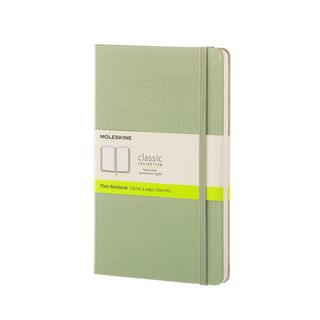I'm Putting Myself on a Money Diet This Year

While financial stress isn't exactly a novel concept, our generation definitely feels the pinch more than ever: Research shows that one in three millennials experience anxiety about money. That's why this week, we're tackling financial wellness from every angle. Get expert advice on everything from the psychology of saving to investing when you have no clue where to begin. Financial empowerment is the ultimate goal, but you just might raise your bottom line, too.
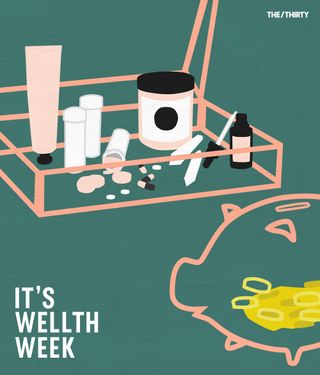
As a 20-something creative who lives in one of the most expensive cities in the U.S., I'm not exactly immune to money-related stress. The tipping point for me arrived a few months ago when I moved for the second time in a year. After dipping deep into my savings to put up the cash for deposits, new furniture, and other related expenses, I found myself in a suffocating panic one evening while assessing the state of my bank account.
To feel the physical strain of this anxiety was the ultimate wake-up call. Moving was a necessity, sure, but I also knew that I could have better cushioned the blow if I had been more responsible with my finances in the months (or years) prior. The regret washed over me as I gazed at all the barely worn clothes in my closet—relics of "Let's just go in and look!" and "I need that." It was time for a serious mindset shift and a serious budget.
In other words, it was time to put myself on a money diet.
To do so, I'd have to rip off the proverbial Band-Aid and actually take a deep, honest look at my current finances as well as my budget—something I had been avoiding out of sheer anxiety for months. But taking active responsibility is the crucial first step to financial freedom, says Chelsea Fagan, co-founder of The Financial Diet, a media company for women who want to talk about money.
"A 'money diet' is essentially any time you become thoughtful, methodical, and strategic with your money rather than just letting it wash over you and kind of sweep you away," she says. The fact that you're doing it at all is even more important than the "how." "All budgets are going to be inherently unique, but the act of being on one is the most important first step in any financial journey," she adds.
It's been about two months since I took that shaky first step, and while this is definitely an ongoing, ever-evolving journey, after committing to both an attitude adjustment and a much stricter budgeting strategy, I'm finally starting to feel empowered by my finances instead of terrified.
Keep scrolling to see how my money diet came together.
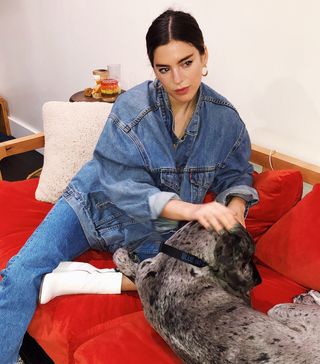
Step 1: I got really honest with myself
Painfully so. I cried. I circled through panic, regret, and self-imposed anger. Avoiding your bank account is a cultural meme at this point, but the harsh truth is that it's really dangerous for your bottom line, and it makes it that much more painful when you're looking at the numbers.
However, it's the byproduct of a culture that tells us not to talk about money, in general, when so many of us (one-third of the millennial population) describe it as an acute stressor in our daily lives. I was ashamed to even bring it up to my therapist, who knows the details of my psyche that are far more intimate than my financial status. That said, I'm so glad I did. As I pieced apart my budget, exploring my own personal psychology around money turned out to be incredibly useful—as was the emotional support.
Even if you don't see a therapist, finding someone to confide in might make all the difference in finding the motivation you need to tighten your wallet. Better yet, invite them to join you. "Having a buddy in any financial journey will make things easier, especially when it comes to saving money," says Fagan.
Step 2: I decluttered my budget to the bare minimum and subtracted that number from my monthly income
Stripping your budget to the essentials comes down to recognizing the difference between fixed versus variable expenses, as in want versus need. "Fixed costs are the budget items that don’t go away no matter how austere you try to be," says financial expert Kristin Merrick. That means necessities like housing, your car payment, insurance, and your phone bill. It's key to get these non-negotiables out of the way since variable costs—things like food, gym memberships, and entertainment—are where the most work can be done.
My own calculation was simple: I added up all my monthly fixed costs and subtracted that total from my monthly income. The resulting number would be my remaining budget, which would cover everything from groceries and going out to paying off my credit card.
I thought seeing that final number would send me deeper into panic mode, but it was weirdly gratifying as I realized that it was more than enough to live comfortably and pad my savings so long as I stopped spending mindlessly. But that, of course, would be easier said than done.
Step 3: I began to seriously rethink want versus need
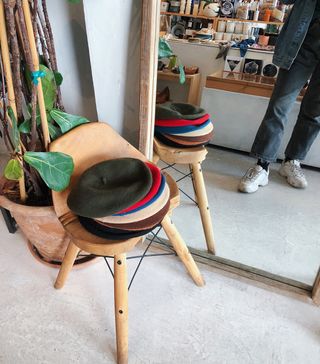
One really important tool to my own money diet has been the online budgeting platform Mint, which syncs and itemizes all your spending and bills so that you know exactly where your money is going in vivid detail. This proved to be crucial as I monitored my own spending over the next couple of months, especially now that I had an exact number for my variable costs. "Before you can really make any serious changes, you have to be extremely lucid about your current financial situation," emphasizes Fagan.
I knew that in order to really understand how much flexible income I really had, I'd need to get even more granular by keeping my variable expenses as austere as possible. In other words, I wanted to see how my life and bank account looked when I was living as frugally as possible. In addition to allowing me to better budget for "fun money" later, I knew that it would also help me reset my mindset around spending.
Some culprits were obvious and easy to eliminate. I had gotten really lazy about bringing lunch to work, for example, and my Postmates habit had escalated to the tune of $80 a week—no longer. I was going out for breakfast several times a week, so I allotted myself one day for weekend brunch and vowed to cook my own food every other morning. On nights I went out, I began with a drink or two at home so I would only buy one marked-up (and under-poured) drink at the bar, if any. While it was tough at the beginning, these were the shifts that were ultimately easy to make without cramping my lifestyle all that much, and seeing the difference in my bank account made my motivation soar.
Other rituals were a little trickier to break. I had justified for too many years that because I bought so many of my clothes at vintage or thrift stores, I was inherently thrifty. But spending $100 every other weekend was quickly adding up and at no great advantage to my wardrobe. I was in a nasty habit of wearing things once (and getting the 'gram) before leaving them to collect dust in my closet. Short of true necessities like underwear, socks, and a winter coat, I put myself on a shopping moratorium. Then, I cleaned out my closet.
Step 4: I looked for "found money"
This meant essentially flipping my life upside down and shaking out any spare change. I checked my iTunes downloads and realized I was being billed $40 a month for apps I didn't even use anymore. I used Trim, an app that locates any monthly subscriptions and cancels them on your behalf. I called my car insurance company and negotiated a better deal. I halved my closet and listed all the rejects on Poshmark, which felt oddly cleansing.
These were all things that had seemed inconsequential enough to ignore individually, but collectively, it was amazing to see how much money I was getting back—even if it was painful to think how much I had wasted by turning a blind eye.
Step 5: I put my credit cards into storage indefinitely
The point systems and benefits of credit cards are all great in theory, but the seduction of having this extra money at your disposal has put millions of Americans in credit card debt. I had gotten in the habit of viewing my own cards as a cushion for both emergencies and bigger expenses like travel, and it was time to face the harsh truth: This was not my money to use. I made it my goal to pay off all my credit cards by 2020 and took them out of my wallet. Aside from initially facing my bank account, this was probably the scariest component of my money diet.
However, it was also the kick in the rear that I needed in terms of saving for big-ticket items like vacations or a new computer. Instead of buying now and paying off later, I'd need to start planning ahead and put money from my monthly budget aside well in advance. Calculating just how much money I've spent on interest was also a sobering detail, as I realized just how much cash I could have been allocating to a down payment on a new car.
Step 6: I started to say no
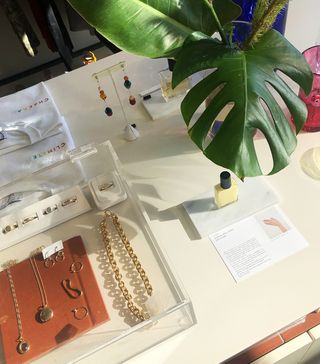
There's nothing like a strict budget to make you realize how much of your life is fueled by FOMO. Especially at first, it was a huge bummer to say no, even to things that seemed relatively inconsequential like pancakes at my favorite breakfast spot or a new dress for a holiday party. Experiences like travel and music hit me even harder. These are the things that I've always justified in the past, even if it meant charging them to my credit card. I'm someone who is always "down," so realizing that I simply cannot do everything I'm invited to was a tough pill to swallow.
Two months later, I wouldn't exactly say I'm shouting, "The best things in life are free!" from the rooftops, but this has been a nice reminder to slow down a bit and reframe the circumstances in my favor. I'm not missing a night out with friends but enjoying a restful night in my beautiful new apartment, for example. I miss my gym membership sometimes, but I love going on hikes with my puppy so much more. I can't go on that trip abroad in two months, but I'll plan and save for an even better one for the end of the year.
Ultimately, knowing that I'll never again have to experience that all-consuming dread when facing my bank account is more than worth it.
Next up: Here's how to deal with financial anxiety.
Disclaimer
This article is provided for informational purposes only and is not intended to be used in the place of advice of your physician or other medical professionals. You should always consult with your doctor or healthcare provider first with any health-related questions.
